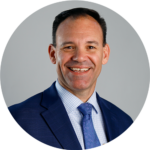Think back to those early days in your career as a fraternity and sorority professional. Maybe you are still in them, but think about how often you were “recognized” for good work.
Have you ever heard “thank you” or “you’ve done good work” said to you enough? The answer is likely “no.” Working in higher education, you would be unwise to enter because you think people will be grateful for the work you do. Even if they are, you will never hear it said the number of times it is deserved.
AFA is an organization in which our work is celebrated and one of the ways this is accomplished is through the awards process. One of the first awards that new professionals are eligible to receive is the Gayle Webb New Professional Award, first awarded in 1990 and then named after the first Executive Director of AFA upon her retirement in 1999. Previously only for campus-based professionals, in 2017 the award was also presented for the first time to a headquarters staff member. Over the last 33 years, 40 individuals have received this recognition.
In this article, former Gayle Webb New Professional Award recipients chose to interview other former recipients to capture the significance of winning, the importance of recognition in the field, and advice they have for new professionals looking to positively contribute to the field.
What impact did winning the Gayle Webb New Professional Award have on you and your career?
- Todd Sullivan: Receiving the award was an acknowledgement of the relationships I was building and an affirmation of the work I was doing early on in my career. It was a pat on the back that encouraged me to keep striving.
- Veronica Moore: Winning the Gayle Webb New Professional Award provided me with the confidence and reassurance that my work as a new professional was not in vain. There is only so much that our graduate programs prepare us for and my first year was a pretty rough transition. My mentors, peers, and former and current supervisors at that time gave me hope by nominating me for the award. It was definitely something that I aspired for, and to be awarded with this recognition was an early highlight of my career.
- Michael McRee: It was an initial affirmation of good work and conveyed potential to impact the profession. I think being acknowledged with an award helps to build one’s capacity. For example, when you think of a baseball player, if you strike out all the time, you might give up and stop trying. Conversely, if you have some success and get acknowledged for it, you tend to be more likely to swing for the fences and strive for more homeruns. Being recognized early in one’s career, I think invites the individual to take more risks, try new things, and take on bigger challenges so that you build capacity and keep growing.
Why is recognition of new career professionals important?
- Todd: Burnout is more common now than ever. If we can support new professionals to let them know they are headed in the right direction, that can prevent some from stopping out and leaving their job, or the field entirely.
- Veronica: The work is tiresome and the likelihood of burnout in “chasing the dream” can cause burnout. The time needed to truly develop skills to become a competent professional is of the utmost importance and takes strategy. When a new professional has put in the work to attain their professional goals, it deserves recognition. This increases morale and retention of talented individuals.
- Michael: At any stage in one’s career, I think it is rare that people get publicly acknowledged by their peers. Most folks do not get recognized for the good work they do, especially at a national level. It’s important that we do this for others and that we find ways to always look for those people who deserve to be nominated or recognized. A mentor of mine, Karyn Nishimura Sneath, helped to instill that it’s a responsibility of a good professional to nominate those deserving every year. There are many who have won this award who have gone on to exceptional careers in higher education. Dr. Walter Kimbrough, for instance, was a Vice President for Student Affairs ten years after winning the award and eventually a college President. Walter is a tough act to follow, and while his path may not be the path you or others want, it is important to see how early recognition of young professionals can help build a career and set you on a path that can make an incredible impact on higher education.
How can we build recognition and celebration of others into our daily work? How does giving and receiving feedback positively contribute to our work?
- Todd: Aside from formal performance reviews, individual coaching and guidance can show people that their contributions are valued. Not everyone needs an award, but they need to know that the work they do matters to individuals and to the larger organization or institution.
- Veronica: Ongoing celebration and recognition take intentionality. Leaders should design ways that allow for open communication and celebration as a part of normal operative tasks (i.e., all staff meetings, 1:1 meetings, cross collaborative functional area meetings, etc.). Doing so creates a culture of appreciation from which all parties benefit.
- Michael: I personally have not always been good at being in the present and in the moment when I’ve been incredibly fortunate to be honored with these kinds of recognitions. Personally, I think it’s also important for those who do win to take a few moments and reflect – identify how and what they have done has been important and what has had an impact. What do you want to stop, start, and continue? One of my many role models in the field is Dave Westol. He won the Anson Award in 1987 and he is still out there working hard and on some of the most difficult issues (membership reviews, chapter closures, etc.) – nearly 40 years later! Recognition does not have to come at the end of one’s career. It can create opportunities for the person being recognized to continue to have an impact, add value, and make contributions long past when they win the award.
From where you sit, what advice would you give to new professionals?
- Todd: Ask yourself why you are doing what you do. Is it for recognition? To impact others’ lives? To forge a sense of personal worth? To advance the organization’s goals? There’s no right or wrong answer, but it’s essential for your actions to have a clear purpose.
- Veronica: First and foremost, be a sponge to obtain all the necessary information and opportunities that allow you to develop as a professional. Remove familiarity and work to push yourself outside of your comfort zone – there is nothing remarkable that resides there.
- Michael: Some of the best advice I received early in my career is the expectation that you should be on conference staff or present at every conference you attend. If you present, you find your professional voice as a presenter, educator and facilitator. You can put new ideas out there and influence the field. Nothing makes you know and learn a subject like having to teach it. Early on that encouragement as a new professional prompted me to present more, write more, and contribute more. It helped me become a better professional. And when you are on conference staff, it puts you in a position to be exposed to other good professionals in the field. It networks you. One isn’t better than the other – I think it’s important to do both.
About the authors:

Dan Bureau is the Assistant Vice President for Student Health and Wellbeing at Louisiana State University. A frequent author, presenter, and consultant on fraternity and sorority life, Dan served as AFA’s President in 2004, the liaison to the Council for the Advancement of Standards (CAS) since 2008 and was the President of CAS from 2019-2021. He won the Gayle Webb New Professional Award in 2000.

Mike McRee, Ph.D., is Principal at The Whitespace Group, helping clients focus on and prioritize what matters most. He is a past executive leader for the NIC, Delta Upsilon Educational Foundation, LeaderShape, Inc., AFLV, and FSL advisor at the University of Oregon.

Todd Sullivan is an active fraternity and sorority life advocate who served Delta Upsilon, Florida International, Tufts, UConn and Drexel prior to joining the NIC as Vice President of Campus Support. He supports the development of a diverse student population in alignment with values and standards.

Veronica Moore is the Director of Educational Programs for Delta Upsilon Fraternity, a role she has held since 2017. Veronica has spent over 15 years in higher education administration and additionally has spent over 12 years in strategic planning organizational change management. Veronica has over six years of non profit board experience and she is a past president and board member of the Association of Fraternity and Sorority Advisors (AFA). Veronica is a business owner and a member of Delta Sigma Theta Sorority, Inc.





